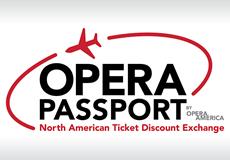Arts Advocacy Updates
U.S. Small Business Administration Updates Guidance for Shuttered Venue Operators Grant (SVOG) Program; Program Weeks From Being Operational
The U.S. Small Business Administration (SBA) updated its FAQ document (effective February 28) concerning the $15 billion Shuttered Venue Operators Grant (SVOG) program. The grant program is still weeks away from being operational, as the federal agency is staffing up to receive and process the influx of applications and develop its application portal for eligible entities to directly apply to the federal agency for initial and supplemental grant awards. This report compares the latest version of the SBA FAQ document with the prior version, dated February 12. The SBA is also working on releasing a series of videos about eligibility requirements, revenue loss requirements, and the application process. One of the videos will help eligible entities determine which path to choose to receive pandemic relief — the Paycheck Protection Program or SVOG. The SBA will provide advance notice before the start of the program. There is no specific time frame yet as to when the program will begin.
In the latest version of its FAQ document, the SBA continues to prohibit eligible entities from applying for an SVOG grant if the entity applies for a first- or second-draw PPP loan on or after December 27, 2020. Eligible entities can apply for an SVOG grant only if their PPP applications are declined by the SBA. The SBA further clarifies the “revenue loss” term for the two priority periods as “gross revenue” loss, which it equates to “receipts,” meaning revenue from any source excluding disaster assistance funding from the government. The SBA indicates in its FAQ document that it will not have an appeal process for declined applications. Other highlights from the FAQ document include the following:
- The SBA defines the term “performing arts organization operator.”
- Grantees are required to spend their initial grant within one year of the disbursement date.
- Eligible entities are still eligible for the SVOG program if they received state/local government funding.
- The SBA further defines “principal business activity.”
- The SBA will take into consideration capital funds, restricted grants, and investment income when the federal agency examines an eligible entity’s gross revenue.
- The SBA will not consider donations or contributions as “gross earned revenue.”
- The SBA will utilize an applicant’s fiscal year 2019 “earned revenues” as the basis for calculating award amounts for the initial and supplemental grant award phases. Maximum award amounts are equal to 45% of an entity's gross earned revenue, with a maximum of $10 million.
- The SBA further clarifies that federal disaster assistance funding (e.g., CARES Act funding) or funding directly or indirectly from a state government is excluded from an entity’s gross revenues.
It is important to note that the SBA will provide the maximum initial grant awards to eligible entities until program funding runs out. Grants will be awarded on a first-come, first-served based on the application’s date and time stamp. In the meantime, OPERA America members can prepare to apply for the SVOG program by compiling their financial documents for 2019 and 2020, securing their DUNS number, and securing their SAM registration in order to receive a grant award. Both the DUNS number and the SAM registration are free of charge, but it is urged that members secure these items as soon as possible to avoid processing delays. OPERA America continues to work with the SBA and Congress to address outstanding issues and clarifications yet to be made by the SBA concerning eligibility and revenue loss requirements. OPERA America is a signatory on a letter sent to the Biden-Harris administration by the National Independent Venues Association urging the SBA to start the SVOG as soon as possible.
Paycheck Protection Program Application Deadline Is March 31
This is a reminder that the application deadline for the Paycheck Protection Program is March 31, 2021. There is currently a 14-day moratorium, ending March 9 at 5:00 p.m. EST, on applications for eligible entities with 20 or more employees to allow greater access to the loan forgiveness program by smaller entities. OPERA America is a signatory on a support letter by the nonprofit sector that was recently sent to congressional leadership to extend the PPP application deadline to the end of the year. The U.S. Chamber of Commerce also supports the extension of the PPP application deadline.
U.S. House Advances Biden-Harris Administration’s Pandemic Relief Proposal; U.S. Senate to Consider This Week
The U.S. House passed the Biden-Harris Administration’s $1.9 trillion pandemic relief proposal — the American Rescue Plan Act of 2021 — by a vote of 219 to 212 on February 27. The legislation provides another round of federal stimulus payments to individuals and families; provides another round of enhanced federal unemployment benefits and extends federal unemployment programs until August 2021; provides additional pandemic support to small businesses and nonprofit organizations; provides additional aid to states and local governments; provides additional funding for schools to reopen safely; and provides funding for pandemic vaccine distribution. The relief package also provides an additional $7.25 billion for PPP, an additional $1.25 billion for the SVOG program, and an additional $135 million in emergency funding each to the National Endowment for the Arts and the National Endowment for the Humanities. The $15 minimum wage requirement provision is stripped from the package even though it was contained in the House-passed bill. As a result, if the Senate passes the package, it will go back to the House for its consideration and passage. OPERA America is a signatory on letter by the nonprofit sector sent to the Biden-Harris Administration and congressional leadership that urgest for more support for nonprofit and charitable organizations.

Tony Shivers
Tony Shivers is OPERA America’s director of government affairs.



